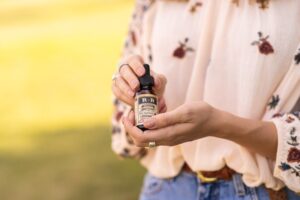Despite it being a rather booming niche at the moment, CBD is still a very sensitive topic overall, to say the least. Both manufacturers and sellers must respect strict regulations, as just 0.1% of product or concentration difference can literally make their product illegal.
Moreover, the regulations differ from country to country and continent to continent. By now, we all know how the US is treating CBD within its market. However, some people might not know how this substance looks in the eyes of British authorities. If you want to start a CBD business or enrol in a premium private label CBD program, here’s what you need to know!
Simply Put – Is CBD Legal in the UK?
One might answer this question with both yes and no. CBD is, in fact, legal across the UK, as long as its THC content is under 0.2%. Any kind of product that has more THC than the mentioned percentage becomes illegal.
On top of that, the authorities must also be able to trace a CBD product back to industrial hemp approved by the EU. The UK might not be a part of it anymore, but this doesn’t mean it can’t trade with the rest of the continent.
Licences for CBD Production
 CBD connoisseurs already know that no two CBD products are the same – unless coincidence kicks in. This is due to the fact that CBD products are quite customizable. This applies to both THC and CBD concentrations.
CBD connoisseurs already know that no two CBD products are the same – unless coincidence kicks in. This is due to the fact that CBD products are quite customizable. This applies to both THC and CBD concentrations.
Therefore, in order to produce CBD, a person or entity needs to own a licence. As a result, those that want to buy CBD products and resell them must also make sure that the producer is licensed. If not, they might get themselves into some legal trouble.
A licence implies that only the non-controlled parts of the hemp plant can be used in the production of CBD. These parts refer to those that just have commercial purposes. On top of that, the producer can use only seeds that have been approved to grow their hemp.
The Status of CBD in the UK
Both the UK and the WHO deem this wonderful product as non-addictive, and well-tolerated. As we mentioned, this is due to the very limited percentage of THC that most products contain. If it doesn’t have the high, the state allows it.
But we have to take into account the purpose of the CBD product – as there are different types of products. Each type is regulated by its own specific authority in the UK.
- The UK Food Standards Agency and the European Food Safety Authority The two classify CBD products that are meant to be ingested as a novel food. Such products are given special status and, therefore, can be manufactured and sold in the UK. This is particularly important as these two entities basically make up the FDA of Europe.
If they allow it, then it means that CBD is past the point of uncertainty when it comes to unknown potential health complications. - The Cosmetic Toiletry and Perfumery Association For this entity, CBD and CBD products are located in a grey area. Such products, but with cosmetic purposes, are not yet deemed as having valid benefits/advantages.
- The Medicines and Healthcare Products Regulatory Agency This entity is responsible for all CBD-related consumables, as well as for medicine/drugs. Naturally, it does allow CBD, as it regulates tinctures, edibles, oils, as well as supplements. Moreover, the agency did state that it agrees with the fact that any CBD product that is used for medical products can be seen, in fact, as actual medicine. Obviously, that’s a very important step for the CBD industry worldwide.
The Bottom Line
Overall, CBD is legal in the UK and the laws that govern it are not hard to respect, so to speak. Anyone can produce or sell such products easily if they follow the set of regulations.
However, regardless of your place in the chain when it comes to a CBD product, you have to make sure that every other link follows the regulations too. As mentioned, even the seller must confirm that the first plant used in the production of an oil or tincture was EU-approved.
Given the thin line that CBD walks, it’s safe to say that mistakes must not be made!







